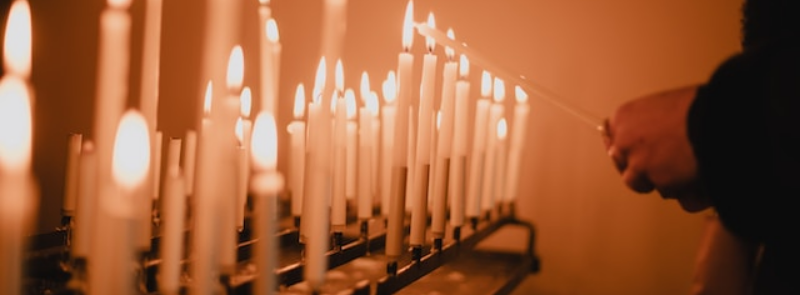
When It Occurs
Every January 16th
Official Website
Timeline
Days Passed (1133)
# Hashtags
#NationalReligiousFreedomDay #ReligionForAll
On January 16, National Religious Freedom Day is observed to champion the ideals of peace and acceptance. The day emphasizes the fundamental right of everyone to hold their own religious beliefs, enabling people to worship freely in their churches, mosques, and temples as a basic human right. Regrettably, not all nations uphold liberal attitudes toward religious differences, sometimes resorting to violence and coercion to curtail religious freedom. National Religious Freedom Day was established to propagate the values of peace, love, and acceptance, encapsulating the principle of live and let live.
Historical Background: The Virginia Statute for Religious Freedom, drafted by Thomas Jefferson and enacted by the Virginia General Assembly on January 16, 1786, is a landmark document in the history of religious liberty. The statute declared that "no man shall be compelled to frequent or support any religious worship, place, or ministry whatsoever," establishing the principle of separation of church and state and ensuring that individuals have the right to choose their religious beliefs without government interference.
This statute influenced the First Amendment of the U.S. Constitution, which guarantees freedom of religion, speech, press, assembly, and petition. National Religious Freedom Day celebrates this legacy and reaffirms the commitment to upholding and protecting religious freedom for all.
Significance: Religious freedom is a fundamental human right and a cornerstone of American democracy. National Religious Freedom Day serves to:
- Promote Awareness: Increase awareness about the importance of religious freedom and the need to protect this right for all individuals.
- Celebrate Diversity: Celebrate the diverse religious landscape of the United States and the peaceful coexistence of different faiths.
- Encourage Reflection: Encourage reflection on the historical and ongoing struggles for religious liberty and the work that remains to ensure this freedom for everyone.
- Affirm Commitment: Reaffirm the commitment to upholding the principles of religious freedom as enshrined in the Constitution and other foundational documents.
Ways to Celebrate National Religious Freedom Day:
- Educational Activities: Learn about the history and significance of the Virginia Statute for Religious Freedom and the First Amendment. Schools, libraries, and community organizations can hold discussions, lectures, and exhibits on religious freedom.
- Interfaith Dialogues: Participate in or organize interfaith dialogues and events to foster understanding, respect, and cooperation among different religious communities.
- Reflect on Personal Beliefs: Take time to reflect on your own religious beliefs and the importance of being able to practice them freely. Consider how religious freedom impacts your life and community.
- Support Religious Freedom Organizations: Support organizations that work to protect and promote religious freedom both in the United States and around the world. This can be through donations, volunteering, or advocacy.
- Community Events: Attend or host community events that celebrate religious diversity and promote mutual respect among different faith groups.
- Social Media: Share information, stories, and resources about religious freedom on social media using hashtags like #ReligiousFreedomDay and #ReligiousFreedom. Engage in conversations about the importance of this fundamental right.
Notable Quotes on Religious Freedom:
- Thomas Jefferson: "Almighty God hath created the mind free. All attempts to influence it by temporal punishments or burdens... are a departure from the plan of the holy author of our religion."
- James Madison: "The religion then of every man must be left to the conviction and conscience of every man; and it is the right of every man to exercise it as these may dictate."
- Martin Luther King Jr.: "We must never forget that freedom is not something that is voluntarily given by the oppressor; it is something that must be demanded by the oppressed."
Conclusion: National Religious Freedom Day is a vital observance that celebrates the foundational principle of religious liberty in the United States. By reflecting on the historical significance of the Virginia Statute for Religious Freedom, engaging in educational activities, and promoting interfaith understanding, individuals and communities can honor this essential right. National Religious Freedom Day serves as a reminder of the ongoing importance of protecting and upholding religious freedom for all, ensuring that everyone can freely practice their beliefs without fear of persecution or discrimination.


